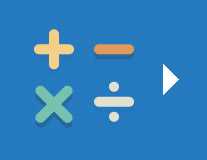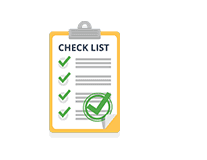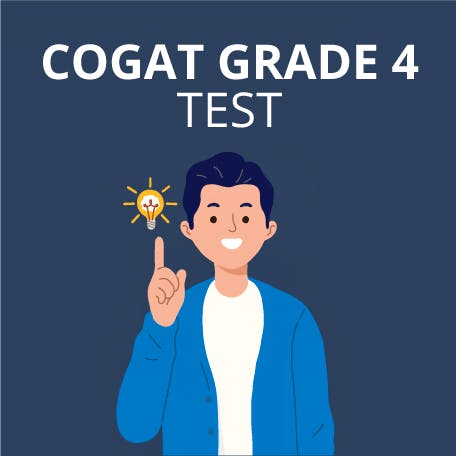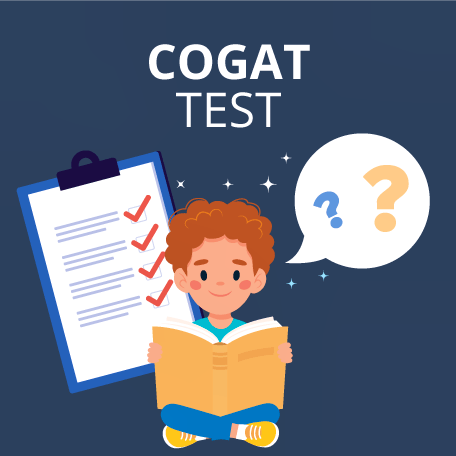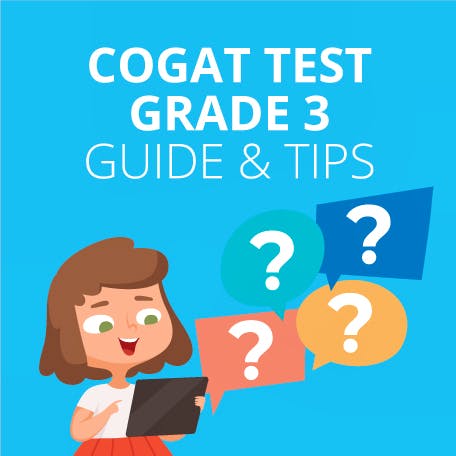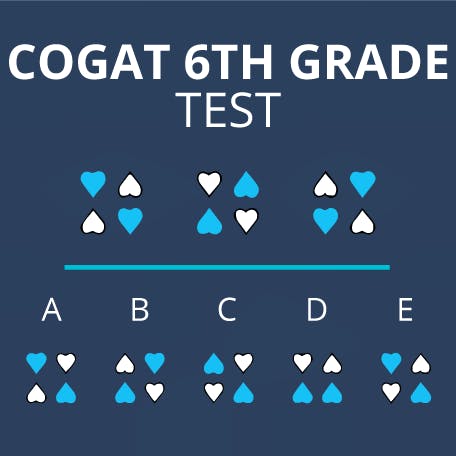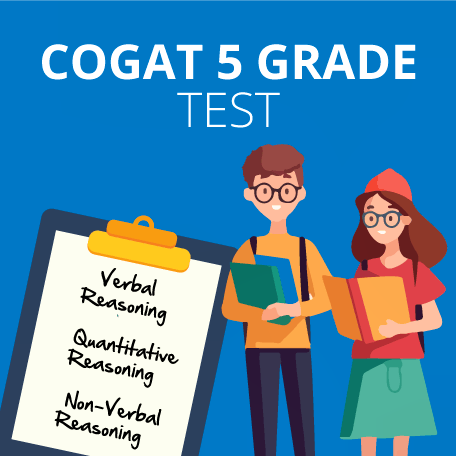Practice Free CogAT Kindergarten Test Sample Questions
Updated April 10, 2024
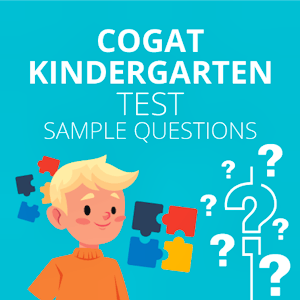

The CogAT (Cognitive Abilities Test) for Kindergarten is an assessment designed to evaluate the cognitive development and problem-solving abilities of young children.
Typically, this version of the test is tailored to children around five to six years old who are attending kindergarten.
The test is typically used for educational placement, identifying gifted and talented students, and understanding a child's cognitive strengths and weaknesses. It can be administered individually or in groups, and is often used by schools to tailor instruction to better meet the educational needs of their students.
Understanding the results of the CogAT can help educators and parents support the child's learning and development more effectively, by identifying areas where the child excels or may need additional focus.
In this article, you’ll find practice CoGAT Kindergarten practice test questions and tips to help your child prepare for the big day.

Here are some CogAT kindergarten sample questions to help you prepare:
Verbal Battery
This part assesses verbal reasoning and comprehension through questions that involve vocabulary, analogies, and sentence completion. It aims to gauge how well children can process and understand language-based information.
1. Choose the word that best completes the sentence:
A cat is a type of ________.
a) Car
b) Animal
c) Fruit
d) Chair
2. Choose the word that is similar in meaning to "happy".
a) Sad
b) Angry
c) Joyful
d) Sleepy
3. Which word means the opposite of "cold"?
a) Hot
b) Ice
c) Winter
d) Snow
4. Choose the word that completes the sentence correctly:
"A dog likes to _______."
a) Swim
b) Bark
c) Drive
d) Fly
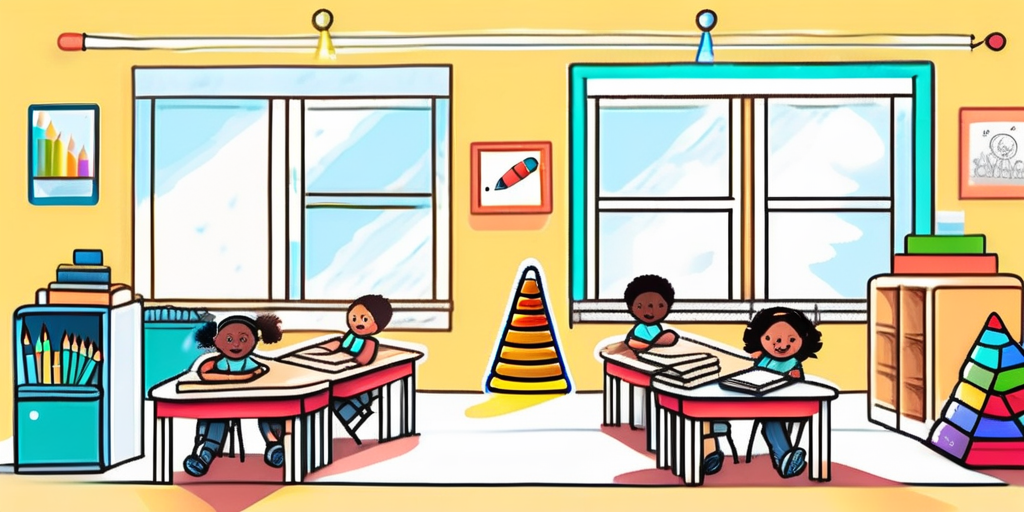
1. If there are 2 apples in one basket and 3 apples in another basket, how many apples are there in total?
a) 2
b) 5
c) 3
d) 4
2. Which group has more circles?
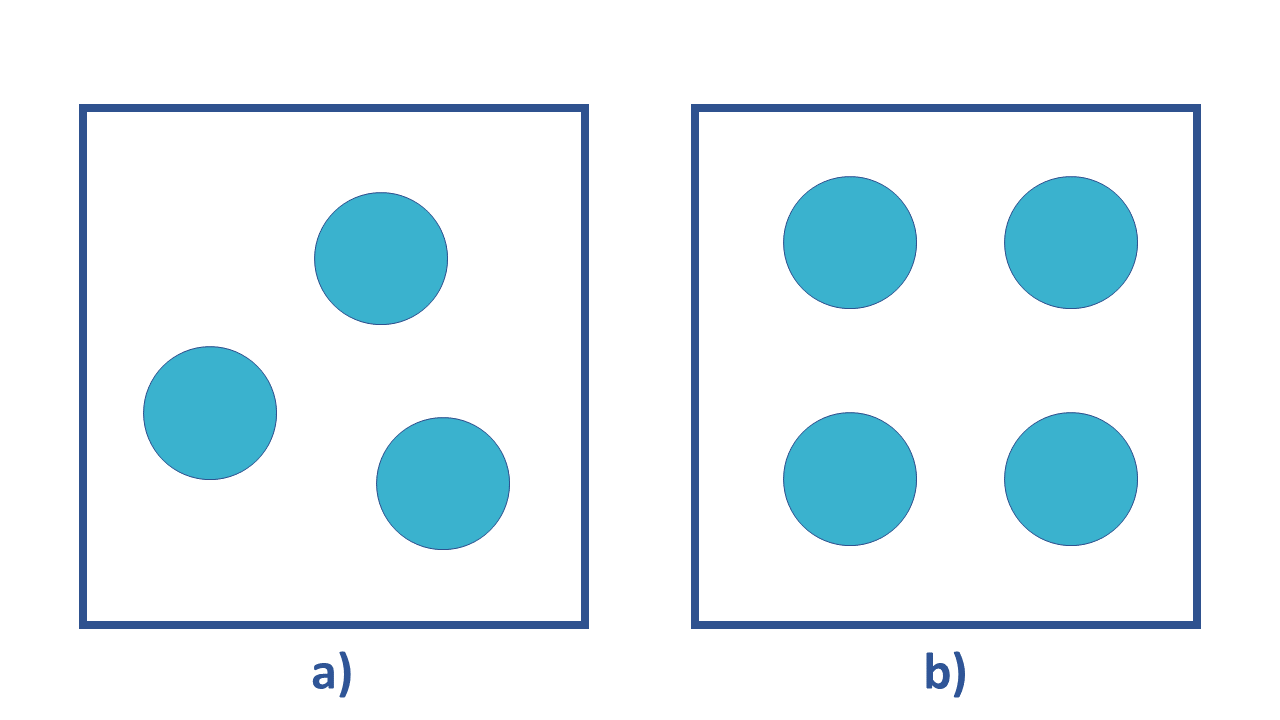
a) Group A
b) Group B
c) Both groups have the same
d) Neither group has circles
3. Which number is the biggest?
a) 4
b) 8
c) 3
d) 5
4. If you have 5 candies and you give away 2, how many candies do you have left?
a) 3
b) 2
c) 7
d) 5
1. Look at this pattern: ▲ ● ▲ ● ▲
What comes next?
a) ●
b) ▲
c) ■
d) ★
2. Which shape is different from the others?
a) ●
b) ●
c) ●
d) ▲
3. Look at these shapes: □ △ □ △ □
What comes next?
a) △
b) □
c) ○
d) ★
4. Find the shape that does not belong:
a) ○
b) □
c) ○
d) ○
If you want 12-month access to all the practice resources for this test, our partner TestPrep-Online.com offers a Family Membership.
Family Membership gives you access to all the TestPrep-Online resources for the next 12 months. You will also get two separate accounts, which can be very helpful if you have two children preparing for their tests.
CogAT Kindergarten Test Sample Questions – How to Prepare
Preparing a child for the CogAT Kindergarten Test involves a combination of academic preparation, mental readiness, and ensuring they are physically prepared on the day of the test.
While preparation is important, it’s also crucial to keep the process fun and stress-free. The goal is to help your child do their best without feeling overwhelmed or pressured.
Here are some strategies and tips:
Step 1. Academic Preparation
Practice Pattern Recognition
Work on identifying patterns and sequences with your child using everyday objects, toys, or drawing shapes. This helps with both the nonverbal and quantitative sections.
Develop Vocabulary and Language Skills
Read a variety of books with your child, discuss the stories, and explain new words. Engage in conversations that encourage your child to express ideas and feelings to enhance verbal skills.
Teach Basic Math Concepts
Use real-life situations to teach counting, addition, subtraction, and basic geometry. Games that involve numbers or logic puzzles can be particularly beneficial.
Familiarize Them With the Test Format
If possible, use CogAT Kindergarten practice tests or sample questions (like those previously provided) to make your child comfortable with the type of questions they will encounter. This reduces anxiety and improves performance.
You can find practice packs on TestPrep–Online.
Step 2. Mental and Psychological Preparation
Encourage a Positive Attitude
Help your child understand that the test is a way to learn new things and show what they already know. Emphasize effort and improvement over perfection.
Reduce Anxiety
Explain that it’s okay to find some questions challenging and that they can move on to the next question without getting upset. Practice deep breathing or other relaxation techniques if your child gets nervous.
Build Confidence
Praise your child’s effort and progress in learning. Confidence can significantly affect test performance, so ensure your child feels supported and believed in.
Step 3. Physical Readiness
Ensure Proper Rest
Make sure your child has a good night’s sleep before the test. A well-rested mind is crucial for focus and concentration.
Provide Healthy Meals
A nutritious breakfast can help with energy levels and concentration. Avoid heavy, sugary, or very high-carbohydrate foods that might lead to a crash in energy levels.
Arrive Early
Make sure to arrive at the test location early to avoid rushing and to give your child time to settle down and adjust to the surroundings.
Step 4. During the Test
Teach Time Management
While time management might be challenging for kindergarteners, you can teach them the basics, like paying attention to the instructor and moving on if they get stuck.
Answer All Questions
If the test format allows, encourage your child to answer all questions, as there is typically no penalty for guessing.
Physical Comfort
Ensure your child is dressed comfortably and has everything they need, like glasses if they wear them.
The CogAT Kindergarten Test measures cognitive abilities in young children, assessing skills in verbal, quantitative, and nonverbal areas.
It's used for educational placement and identifying gifted talents, focusing on reasoning and problem-solving skills in kindergarteners.
Prepare for the CogAT by practicing pattern recognition, enhancing vocabulary and math skills, and completing free CogAT kindergarten practice test questions.
Ensure your child is well-rested, has a healthy meal, and understands the test format. Foster a positive attitude towards testing and learning.
The CogAT Kindergarten Test covers three areas: verbal reasoning, quantitative reasoning, and nonverbal reasoning.
It assesses children’s abilities to solve problems, understand concepts, and apply logic, aiding in educational planning and gifted program placements.
The CogAT Test is important for understanding a child's cognitive strengths and weaknesses. It helps educators and parents guide educational paths, identify gifted abilities, and provide appropriate learning challenges and support for young students.
Yes, parents can help by engaging in activities that build verbal, quantitative, and nonverbal skills, such as reading, math games, and puzzles. Practice sample questions, like those found on TestPrep–Online, ensure a healthy routine, and maintain a positive, stress-free environment for learning.
The difficulty of the CogAT Kindergarten Test varies with each child's abilities. It's designed to measure cognitive skills in a way appropriate for kindergarteners. Preparation, familiarity with the test format, and a supportive learning environment can help reduce its perceived difficulty.
Final Thoughts
The CogAT Kindergarten Test is a valuable assessment tool designed to measure the cognitive abilities of young learners in areas such as verbal, quantitative, and nonverbal reasoning.
While the test's difficulty can vary from child to child, adequate preparation, including practicing specific skills, familiarizing with the test format, and maintaining a supportive and positive environment, can significantly aid in a child's performance.
Parents and educators play a crucial role in preparing children for the test by fostering a love for learning, encouraging critical thinking, and ensuring physical and emotional readiness.
Ultimately, the goal of the CogAT is to help identify individual strengths and areas for growth, enabling tailored educational paths that support each child's development and learning journey.



